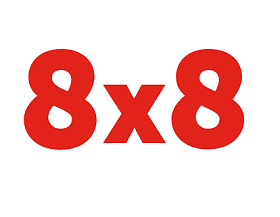No matter your unique circumstances, there are a few factors that are always important to keep in mind when shopping for a business phone system. We asked business owners and decision makers who recently went through the buying process to explain how they went about finding the best business phone system for their needs and what they prioritized during their search.
Cost
When it comes to cost, don’t just choose the cheapest platform, even if you’re on a tight budget. Consider which platform offers the most value per dollar instead, including features you need at no additional cost. Sometimes the cheapest platforms may be lacking in features that usually come standard and charge additional fees for access to them.
“While some providers may provide cheap monthly rates, more money may be charged for additional features. I originally chose a VoIP service with a cheap basic rate, but I soon found out that there were extra costs for things like call recording,” said Victor Zeng, global business director of XMAKE. “Selecting a package that strikes a balance between price and vital features is crucial.”
Usability
Whenever possible, test out the platforms you’re considering to determine how easy they are to use. Avoid platforms that require extensive training to make sense of, as they’re likely to frustrate your employees and disrupt productivity. The best business phone systems are relatively intuitive and won’t take long for the average user to successfully navigate.
“We chose RingCentral last year. When selecting a system, we prioritized ease of use and integration with our existing tools,” said Nell VH, co-founder and director of TheSiteSale. “It’s been a game-changer, but I’d suggest testing features before buying.”
Reliability
In business communications, reliability is everything. The platform you choose should have at least a 99.999% uptime, which is the industry standard. That translates to about five minutes of downtime annually. Even 99% uptime is a considerable difference, translating to about 5,259 minutes of downtime per year, so make sure the platform you’re choosing is truly reliable.
“[With our old phone system] we were having horrible latency problems, like one to two second delays in calls, which does not help when you’re trying to have a conversation,” said Charlie Neville, head of business development for JayWay Travel. “We tested the hell out of RingCentral and other platforms, before we chose RingCentral. It doesn’t have the … most modern user interface … but it has been rock solid.”
Mobile capabilities
It’s common for workforces to be distributed today, whether your team includes remote and hybrid workers or you manage a fleet of drivers. While desk phones and conference calling systems may be important in an office, softphones and mobile apps are key for employees who aren’t always on site.
“In our field of work, we’re always moving around from state to state, talking with drivers, customers and logistics partners. We needed a phone to communicate smoothly, whether at the office or on the go,” said Zach Asher, owner of Amerigo Auto Transport. “A key selling point for Dialpad was its solid mobile app. It can also switch calls from desktop to mobile without dropping them.”
Integrations
The best business phone systems can tie into your existing tech stack. Consider the business software you’re already using and which needs to integrate with your business phone system. Generally, this will include tools like your CRM system and contact center software.
“When choosing a system, we prioritized scalability and integration capabilities,” said Kevin Shahnazar, founder and CEO of FinlyWealth. “As a fast-growing startup, we needed a solution that could grow with us and seamlessly integrate with our existing CRM [software] and productivity tools.”

















